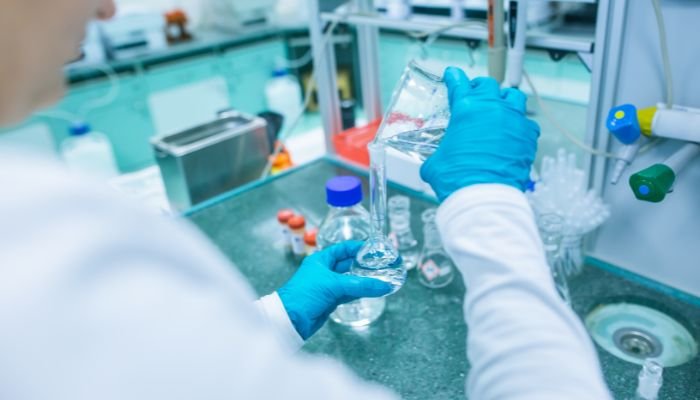Starting your own pharmacy business can be a highly rewarding venture. It offers the opportunity to serve the community by providing essential healthcare products and services, while also being a profitable enterprise. Whether you are a pharmacist looking to branch out on your own or an entrepreneur with a passion for healthcare, establishing a pharmacy business involves several key steps and considerations. In this blog, we will guide you through the process of starting your own business and explore the option of a pharmacy franchise.
Step 1: Research and Planning

The first step in starting any business, is thorough research and planning. Understand the local market and the specific needs of your target demographic. Investigate the competition in your area and identify what sets your future pharmacy business apart. Create a detailed business plan outlining your objectives, target market, competition analysis, marketing strategies, and financial projections.
Step 2: Obtain the Necessary Qualifications and Licenses
To start a pharmacy business, you need to ensure you have the required qualifications. In India, a pharmacist must hold a degree in Pharmacy (B.Pharm or D.Pharm) and be registered with the Pharmacy Council of India (PCI). Additionally, you will need to obtain several licenses, including:
- Pharmacy License: Issued by the State Pharmacy Council.
- Drug License: Required to sell pharmaceutical products, issued by the State Drug Control Organization.
- GST Registration: For tax purposes.
- Business Registration: Depending on your business structure (sole proprietorship, partnership, or company).
Step 3: Choose the Right Location

The success of your pharmacy business greatly depends on its location. Choose a location that is easily accessible to your target customers. Ideal locations include areas near hospitals, clinics, or residential neighbourhoods with high foot traffic. Ensure that the space you choose complies with local zoning laws and has adequate space for inventory and customer service.
Step 4: Setting Up Your Pharmacy
Once you have secured a location, you can start setting up your pharmacy business. This includes:
- Interior Design: Create a clean, professional, and welcoming environment for your customers.
- Inventory Management: Stock a wide range of pharmaceutical products, including prescription medications, over-the-counter drugs, health supplements, and medical supplies.
- Technology Integration: Invest in pharmacy management software to streamline operations, manage inventory, and maintain customer records.
Step 5: Hiring Qualified Staff
Your pharmacy business will need a team of qualified professionals, including licensed pharmacists and pharmacy technicians. Ensure that your staff is well-trained, knowledgeable, and capable of providing excellent customer service. Continuous training and professional development should be a priority to keep your team updated with the latest industry trends and regulations.
Step 6: Marketing and Promotion
Effective marketing is crucial for the success of your pharmacy business. Develop a comprehensive marketing plan that includes both online and offline strategies. Some effective marketing techniques include:
- Online Presence: Create a professional website and maintain active profiles on social media platforms to engage with your customers.
- Local Advertising: Use local newspapers, flyers, and community events to promote your pharmacy business.
- Customer Loyalty Programs: Implement programs to retain customers and encourage repeat business.
- Exploring the pharmacy franchise Option
Starting a pharmacy business from scratch can be challenging, especially for first-time entrepreneurs. An alternative option is to invest in a pharmacy franchise. A pharmacy franchise provides the advantage of operating under an established brand with a proven business model. Here are some benefits of choosing a pharmacy franchise:
- Brand Recognition: A pharmacy franchise offers the benefit of operating under a well-known brand, which can attract customers and build trust quickly.
- Training and Support: Pharmacy franchises often provide comprehensive training programs and ongoing support to help you manage your business effectively.
- Marketing Assistance: Many pharmacy franchises offer marketing support, including advertising materials and promotional campaigns.
- Bulk Purchasing Power: A pharmacy franchise typically has agreements with suppliers that allow for bulk purchasing, reducing costs and increasing profit margins.
- Proven Business Model: With a pharmacy franchise, you benefit from a tested and proven business model, reducing the risks associated with starting a new business.
Conclusion
Starting your own pharmacy business requires careful planning, a solid understanding of the industry, and a commitment to providing excellent customer service. By following the steps outlined in this blog, you can establish a successful pharmacy business that meets the needs of your community. Additionally, considering a pharmacy franchise can provide valuable support and resources, making the process smoother and more manageable. Whether you choose to start independently or opt for a pharmacy franchise, the key to success lies in thorough preparation, continuous learning, and a passion for serving your customers’ healthcare needs.
Embark on your journey to start a pharmacy business today, and make a positive impact on the health and well-being of your community!












